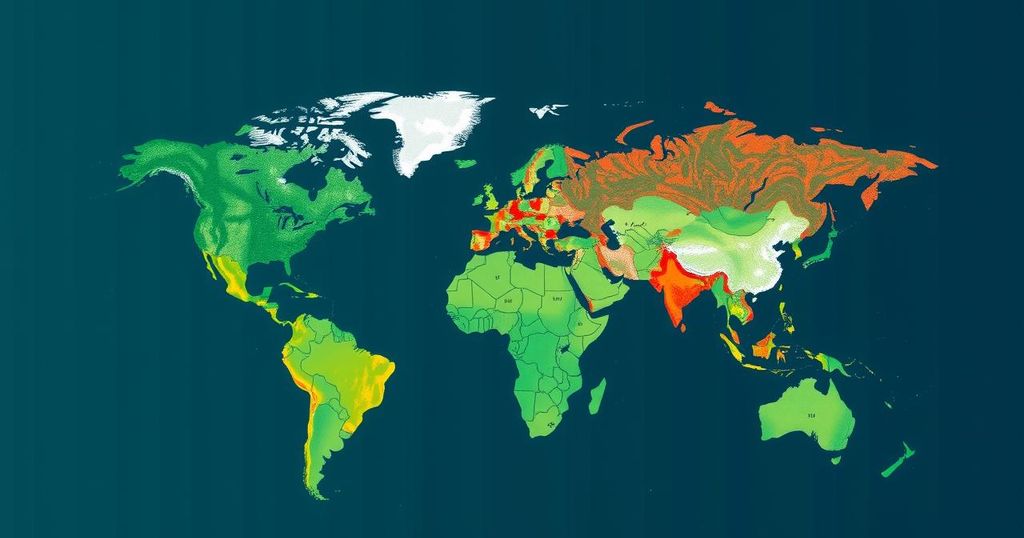At the ongoing U.N. climate change summit, foreign officials are advocating for global climate taxes, termed “solidarity levies,” aimed at funding green energy in developing nations. High-level discussions include generating over $100 billion annually from various industries, amid uncertainties regarding U.S. climate policy under President-elect Trump. Key sectors targeted include shipping, aviation, and cryptocurrency, raising questions about the allocation of funds.
Foreign officials attending the current U.N. climate change summit have initiated efforts to implement global climate taxes, termed “solidarity levies,” aimed at financing green energy projects in underprivileged nations. High-level representatives from countries such as France, Spain, and Kenya are proposing a framework to generate substantial funds, targeting over $100 billion annually through levies on sectors like shipping and aviation. The intent is to establish a detailed plan by the next summit in Brazil, building upon existing measures and discussions around climate financing.
The initiative is particularly timely as President-elect Donald Trump is expected to reassert his skepticism towards international climate funding and agreements, posing challenges to the traditional financial flows aimed at assisting developing countries. Stakeholders at the summit suggest diversifying the funding sources by including cryptocurrency transactions and taxing fossil fuel production, among others. Moreover, there is speculation regarding how the funds generated may be allocated, as some officials propose that they should assist the shipping industry in its transition to lower emissions, rather than directly aiding poorer nations.
While many airline companies are engaging in a global carbon offset program established in 2016, concerns arise regarding the efficacy of such systems in generating usable revenue for climate-related initiatives. The task force examining the solidarity levies is particularly focused on expanding existing duties on airline tickets, which could potentially raise significant annual sums.
A recent study also highlighted the environmental implications of elite gatherings such as the U.N. climate summits, revealing that these occasions contribute notably to greenhouse gas emissions due to the travel choices made by participants, frequently involving private jets. This compelling evidence may drive further discussions on the sustainability of such high-profile events and the urgency of developing comprehensive funding regimes for climate action.
The concept of “solidarity levies” emerges within the context of international discussions on climate change financing, particularly as nations grapple with the challenge of supporting less economically developed countries in their green energy transitions. The global community recognizes the need for substantial financial commitments to address climate change, especially as developed nations debate their contributions amid changing political landscapes. The upcoming U.N. climate summit in Brazil serves as a pivotal point for advancing these funding strategies, especially in light of the anticipated policy shifts in the United States under the new administration.
In summary, the push for global climate taxes, specifically through solidarity levies, reflects the urgent need to secure funding for green energy initiatives in developing countries. With vocal support from various nations amid uncertainties surrounding U.S. climate policy, stakeholders are exploring innovative solutions to raise significant financial resources. However, questions remain about the allocation of these funds and the overall effectiveness of current systems in addressing climate change. As the international community approaches the next summit, the discussions will undoubtedly shape the future of global climate financing.
Original Source: www.shorenewsnetwork.com







